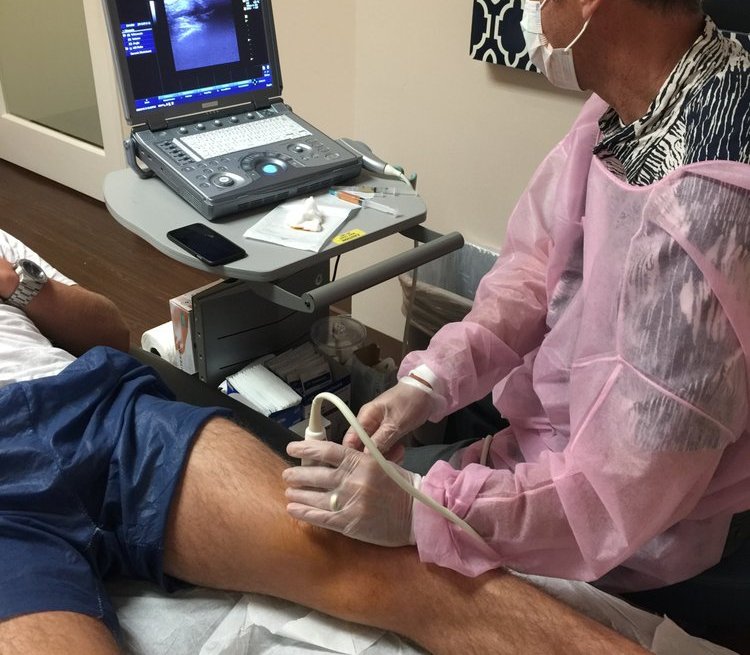When it comes to protecting your joints, the meniscus dilemma is one of the most important questions. Does having surgery on a torn or damaged meniscus decrease your risk of developing osteoarthritis? For many years this has been a subject of debate among medical professionals and patients alike.
On one side, some argue that removing the meniscus increases joint instability which can lead to accelerated wear and tear and eventually result in arthritis. On the other hand, others believe that by surgically repairing or replacing the damaged tissue, they may reduce their chances of experiencing long-term joint damage.
In this article, we explore both sides of this contentious issue as well as examine recent research into its effects on future health outcomes.
The Meniscus: What You Need to Know
The meniscus is a C-shaped cartilage in the knee that acts as a cushion between the thighbone and shinbone. While it can help absorb shock, it also serves to protect against wear and tear due to everyday activities like walking, running, bending, and twisting.
Unfortunately, injuries to the meniscus are common because of its location – right at the joint line of your knee – so when it gets damaged or torn from sports or other activities such as falling down stairs or lifting heavy objects, surgery may be necessary. But does surgery decrease your risk of developing osteoarthritis (OA) later on? That’s what this article will explore.
Well take a look at how OA affects your joints; what happens after you get injured; why some people develop OA while others don’t; and whether there are any ways to reduce your risk of getting OA after having surgery on your meniscus. By understanding these factors better, you’ll have more information about how best to care for yourself if youre ever faced with an injury involving the meniscus.
Surgery as an Option for a Torn Meniscus

Surgery is a viable option for those suffering from a torn meniscus, but it comes with some potential risks. Surgery to repair the meniscus can reduce pain and restore joint stability, but it also carries the risk of infection or nerve damage in rare cases. Additionally, there are concerns that surgery may not prevent the development of osteoarthritis later on.
Studies have shown varying results when assessing whether surgical intervention can reduce the chance of developing osteoarthritis in patients with a torn meniscus. Some studies suggest that while surgery does improve symptoms and quality of life initially, over time these improvements may be lost as arthritis develops regardless.
Other studies indicate that surgical treatment is more effective at preventing long-term complications such as arthritic changes than nonsurgical treatments like physical therapy alone. Ultimately, each individual’s situation will need to be assessed by their doctor to determine which course of action is best for them given their circumstances.
Osteoarthritis Risk and Meniscal Injury

Osteoarthritis is a common joint disorder that can lead to pain, stiffness, and swelling. Those with risk factors for osteoarthritis—such as older age or injury to the knee—are especially susceptible. Many believe that meniscal tears may also increase one’s risk of developing the condition; however, there is still debate among physicians over whether surgery decreases this risk.
To explore this further, it is important to consider how meniscal injuries contribute to osteoarthritis development and what preventative measures are available. While some studies suggest that early surgical intervention can reduce the chances of future damage from an acute meniscus tear, other research indicates no clear advantage in terms of preventing arthritis symptoms later on in life.
Ultimately more research must be done so that healthcare providers can provide accurate advice and treatment plans for those who suffer from a torn meniscus
Investigating the Benefits of Surgical Intervention

When it comes to the meniscus dilemma, there are many questions about whether or not surgery can reduce a person’s risk of developing osteoarthritis. To answer this question, it is essential to investigate the potential benefits of surgical intervention for those suffering from a meniscal tear.
Research has found that when properly performed and with suitable rehabilitation, arthroscopic knee surgery can help decrease pain and improve function in some cases. Additionally, studies suggest that by removing torn tissue in the knee joint which may otherwise contribute to further damage over time, patients experience greater long-term stability and reduced likelihood of developing degenerative diseases such as osteoarthritis down the line.
Other potential advantages associated with surgical treatment include an improved range of motion as well as an accelerated return to daily activities after the recovery period. While these outcomes cannot be guaranteed due to individual differences among patients, they serve as evidence that careful consideration should be given when weighing up surgical options versus non-surgical alternatives for treating a meniscal tear.
Conclusion
The article The Meniscus Dilemma: Does Surgery Decrease Your Risk of Osteoarthritis? has provided us with an insight into the benefits and risks associated with meniscal surgery. While surgery may help to reduce the risk of developing osteoarthritis, further studies are needed to determine its effectiveness for this purpose.
In any case, patients should discuss their options with a qualified healthcare professional before deciding whether or not to undergo meniscal surgery. Ultimately, taking preventative measures such as maintaining a healthy weight and exercising regularly can also help reduce your chances of developing osteoarthritis.






